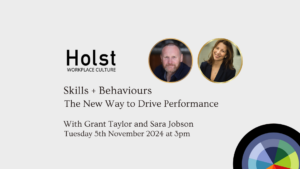Select the right people for promotion to build trust in your teams, drive productivity and retain talent across your organisation.

Making sure that you select the right people for promotion sounds incredibly obvious. No one would actively consider the wrong people. So, how do promotion decisions end badly? The answer lies with decisions based on gut feel, past rather than potential performance, and through not using robust job role benchmarks. In addition, if you don’t match the human needs of the team to the ability and approach of their proposed leader, you have the recipe for a disastrous promotion.
Take a hard look at who and how you promote. How do these decisions affect your workplace relationships? Is the culture continuously moving forward, adapting to the needs and wants of the people within it in order to meet your organisational objectives? Or has it stalled, with attitudes prevailing from the dark ages? Without this ‘hard look’ you run the risk of promoting the same-old-same-old and further entrenching a cycle of outdated and even toxic behaviour. People learn from what they see at work. Make sure that you promote the behaviour and skills that you want to filter through every level of your organisation.
Give confidence to your teams with an accurate promotion strategy
What matters most when you make a promotion decision? Give yourself a point if your first thought was the team they will lead, or the stakeholders of the role. Get this decision wrong and you open up a Pandora’s Box of problems. Too often, promotion decisions do not take into account how well a candidate works with their colleagues. When considering an external candidate, it’s harder (but not impossible ) to get a true picture of how their interpersonal/power skills and personality traits play out in practice. However, when hiring/promoting internally you have all the answers. You just need to constructively ask the right questions to the appropriate people.
Use 360 surveys alongside team assessments from an early stage to gain detail-rich profiles of the people in your talent pool and how they collaborate. You’ll learn who are the outliers, who are the peacemakers, and who should not be allowed anywhere near a leadership role. From here, you can create a plan to develop those with potential, to fill their skills gaps, so they are ready to step up when the opportunity comes. It’s too late to leave this to the point of selection. The skills will be lacking, or the talent will be long gone. Succession planning for internal promotion is a long-term project to both develop and retain the people you need.
"Without growth opportunities, most workers across all levels would depart. Without chances to develop, 68% of business decision-makers would not hang around."
Microsoft’s 2022 global hybrid work survey
Benchmark your job roles to promote on merit
It’s simple. Identify the needs of the job role, including what it will take to work successfully with other stakeholders, and use this as your blueprint.
For example, if the role requires an empathetic approach to leadership, avoid promoting someone with little social/self-awareness. While stretching can be good, avoid promoting people out of their depth. It’s a surefire way to create the perfect conditions for a disengaged team who cannot respect their leader. Take care to avoid a culture of favouritism as you nurture your talent pool. Keep the door open for anyone to join. After all, the right people for promotion may not be among the obvious candidates.
Widen your talent pool beyond the obvious candidates to encourage diversity
"83% of chief HR officers say they face a significant talent retention problem. ... the data found a lack of career advancement and development (19%) was a significant factor behind the lack of talent retention."
XpertHR in partnership with Executive Networks
An organisation wide approach to professional development and career progression is key to retaining your talented people, regardless of whether they want to climb the leadership ladder. It also unlocks potential among those who may not have seen themselves in senior roles. Access to coaching and development could uncover the previously untapped homegrown talent that your organisation needs.
Consider potential beyond the traditional graduates and those with their MBAs to ensure that your people reflect and connect with your customers and stakeholders. Assessments enable hiring managers to make promotion decisions based on personality traits and power skills, rather than superficial appearance and past experience, thus enriching diversity in your workplace culture.
Work with Holst to identify, develop and retain your talented people
Of course no one wants to promote the wrong people, but it is easy for promotion pathways to become entrenched in outdated practice. The same mis-steps repeated time after time. The shakeup of the working world, the squeeze on margins and the risk of expensive avoidable workplace disputes, mean that organisations need to get their promotional decisions right.
We help organisations of every size and sector, from the start-up to the well-established, to create and optimise their succession planning strategies. Talk to our team of expert consultants and coaches to learn how we can do this for you.





